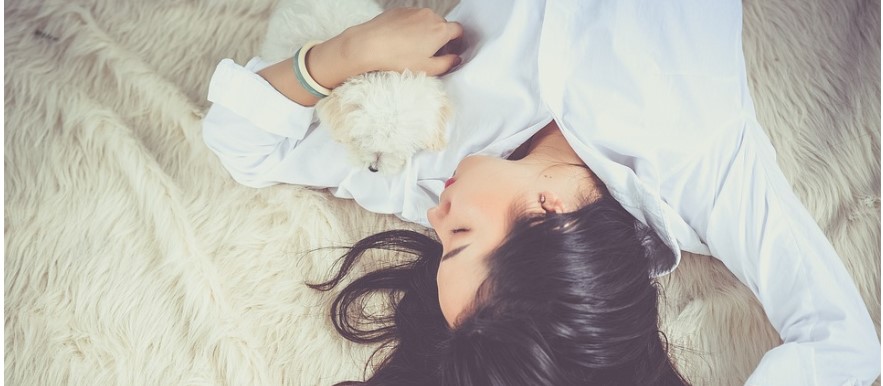
(Photo : pixabay.com)
Biological Factors Influence Women's Sleep Patterns, Study Reveals
- A study reveals biological factors significantly influence women's sleep patterns, causing them to sleep less and wake up more often than men.
- The research used ultra-sensitive movement sensors to assess the sleep patterns of mice, finding male mice slept approximately an hour more than female mice.
- Stress hormones and sex hormones may play a role in these sleep differences, with implications for understanding and treating sleep disorders and related health conditions.
- The study highlights the importance of considering sex as a biological variable in scientific research, potentially leading to more accurate and effective treatments for a range of health conditions.
A groundbreaking study has provided new insights into the sleep patterns of females, suggesting that biological factors may significantly influence why women sleep less than men. The research, led by Rachel Rowe, an assistant professor of integrative physiology at the University of Colorado at Boulder, US, found that women not only sleep less but also wake up more often and get less restorative sleep than men.
The research team used specialized cages lined with ultra-sensitive movement sensors to assess the sleep patterns of 267 "C57BL/6J" mice. The results showed that male mice slept about 670 minutes total per 24-hour period, approximately an hour more than female mice. The extra sleep in males was non-rapid Eye Movement (NREM) sleep, the restorative phase when the body works to repair itself.
In contrast, female mice had shorter bouts of sleep, indicating more fragmented sleep patterns. Rowe suggested that biologically, females are designed to be more sensitive to their environment and wake up when needed, especially because they are typically the ones caring for the young.
The Role of Hormones in Sleep Patterns
Stress hormones like cortisol, which promotes wakefulness, and sex hormones may also play a role in these sleep differences. The team hopes that further research will help understand the underlying biological differences that can enhance sleep treatment.
The study's findings align with previous research that has shown similar sex differences in other animals, including fruit flies, rats, zebrafish, and birds. However, the study's results were surprising, not because of the difference in sleep patterns between male and female mice, but because this difference was not thoroughly demonstrated until now.
Sleep research has seen significant growth in recent years, with numerous animal studies exploring how insufficient sleep impacts the risk of diseases like diabetes, obesity, Alzheimer's, and immune disorders. The study's findings could have significant implications for understanding and treating sleep disorders and related health conditions in humans.
Implications for Future Research and Treatment
The study also highlighted the importance of considering sex as a biological variable in scientific research. A lack of female representation in previous studies may have skewed results, potentially leading to ineffective treatments or unnoticed side effects. The researchers hope their findings will inspire more research into the underlying biological differences and prompt scientists to re-evaluate their research methods.
The study's findings also have broader implications for understanding the impact of sleep on mental health. Chronic sleep deprivation has been linked to a range of mental health issues, including depression and anxiety. Understanding the biological factors that influence sleep could help develop more effective treatments for these conditions.
* This is a contributed article and this content does not necessarily represent the views of btin.co.in









